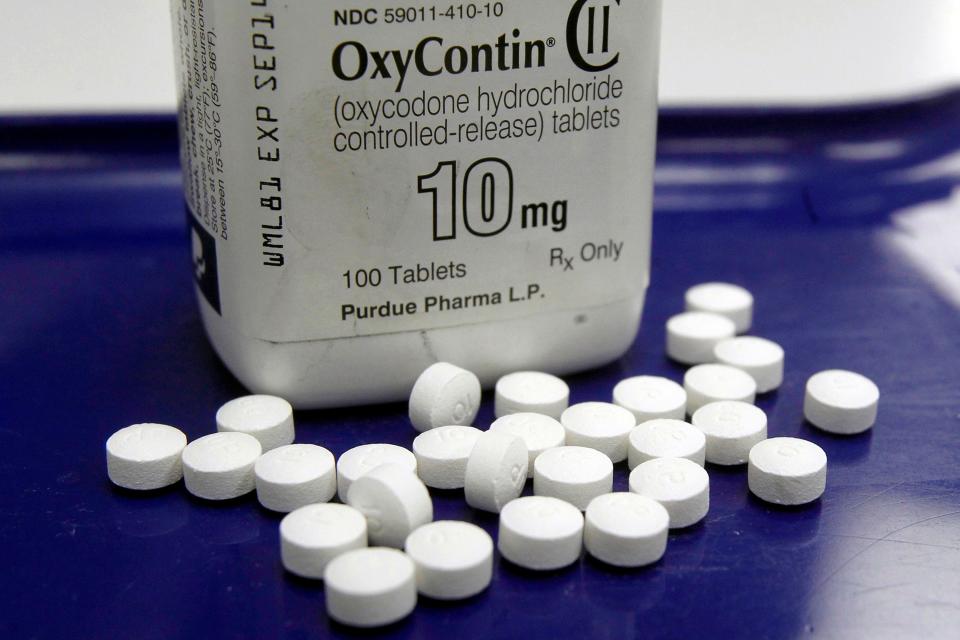In McKinsey opioid settlement, company will pay $23M to schools for role pushing OxyContin
LOUISVILLE, Ky. − One of the most influential consulting firms in the world has agreed to pay millions of dollars to school districts across the country for harm and financial burdens stemming from America's opioid epidemic, court documents say.
Seven Kentucky school districts were among the 14 districts that made up the original plaintiffs of a class-action lawsuit taking aim at McKinsey and Co., a global consulting firm plaintiffs allege was responsible for pushing marketing guidance at multiple opioid manufacturing companies.
McKinsey's settlement includes a $23 million payment to a fund that school districts across the country can apply to and use for addiction recovery and mental health programs. McKinsey also agreed to pay $207 million to hundreds of local governments across the country.
The local municipalities and school districts alleged that McKinsey fueled an epidemic of opioid addiction through its work for bankrupt OxyContin maker Purdue Pharma and other drug companies.
The September settlement marks the second time the consulting firm has been financially penalized for its work with opioid manufacturers.
In 2021, McKinsey reached a $573 million settlement with 47 states, the District of Columbia and five U.S. territories. Of that, Kentucky was awarded $10.8 million. Those dollars were earmarked for opioid treatment, prevention and recovery programs.
Grocery giant's opioid settlement: Kroger to pay $1.2 billion in opioid settlement with states, cities
How will McKinsey's opioid settlement payout work?
Rather than dividing up the $23 million settlement among the country's 14,000 systems, the money will go into the Public School District Opioid Recovery Trust Agreement and individual school districts can apply for grants from the trust.

Grants will be awarded to a "limited number of schools districts or school systems − in order to direct the limited settlement funds to School Districts where it can have the greatest impact," the settlement states.
What did McKinsey do to fuel the opioid epidemic?
Nearly 645,000 people died from an overdose involving an opioid between 1999 and 2021, according to the U.S. Centers for Disease Control and Prevention. In 2017 alone, the CDC estimated the epidemic had a $1 trillion economic toll on the country, with $11 billion attributed solely to Kentucky.
McKinsey's contributions to the country's increasing opioid use surfaced in documents related to its work with Purdue Pharma, which has long been associated with causing the country's epidemic and has repeatedly been found guilty of opioid-related crimes since 2007.
Documents unearthed in lawsuits against Purdue showed the extent in which McKinsey supported the manufacturer's pursuit to maximize their sales of the highly addictive painkiller, even as overdose deaths skyrocketed.
Those documents showed how the firm outlined ways to "turbocharge" the sale of the pills, highlighting several areas that could serve as an opportunity to increase sales. It also created prescriber profiles for 30,000 doctors to create individualized pitches from OxyContin sales reps.
The firm also told Purdue that it could “band together” with other opioid makers to head off “strict treatment” by the U.S. Food and Drug Administration.

School districts sue McKinsey
School districts began filing suits against the McKinsey and Co. in May 2021. The suit filed on behalf of all Kentucky districts alleged the firm was the "primary architect" behind Purdue's "unlawful plan to sell more OxyContin by addicting more people."
“The opioid crisis has created incredible challenges and unexpected cost for schools all across the country,” Ronald Johnson, the attorney for Kentucky's school districts, said in a press release then.
“The taxpayers have been footing the bill, and the teachers, and special education students, have been paying the price for the greed of those who callously enriched themselves at the expense of our children," Johnson said.
Opioid addiction caused a spike of kids with learning disabilities attributable to in-utero opioid exposure, the suit contended, leading to an uptick in Kentucky students needing special education services and supports − costing districts billions of dollars across the country.
Virginia 6-year-old who shot his teacher exposed flaws in how schools treat students with disabilities
The class-action suit was heard in the Northern District Court of California in San Francisco. In October 2022, the judge residing over the case sided with the plaintiffs and dismissed McKinsey's motion to dismiss the suit.
"McKinsey is more akin to an advertising agency that advised a manufacturer on how to sell boilers to residents of specific states, despite knowing that the boilers carried a significant risk of exploding," U.S. District Judge Charles Breyer said. "There is no random or attenuated chain of contacts here. Plaintiffs have plausibly alleged that McKinsey intentionally and purposefully directed contacts at the subject states for several years."
This article originally appeared on Louisville Courier Journal: McKinsey opioid lawsuit settlement includes $23M for US schools

